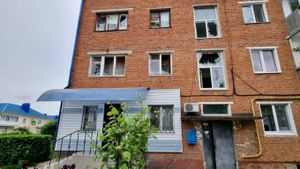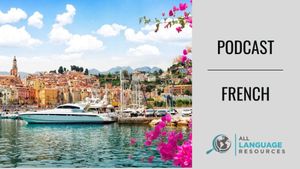Protests erupted violently in Bulgaria's capital Sofia as thousands of supporters of the ultra-nationalist Revival party expressed their opposition to the government's plans for adopting the euro. The protests, spanning two days on February 22 and 23, culminated with protesters attempting to storm the building of the European Union mission, leading to several clashes with police, injuries, and significant damage to property.
During the demonstrations, the crowd, estimated to number between 2,000 and 3,000, threw Molotov cocktails, fireworks, firecrackers, and red paint at the EU building, damaging its entrance and setting it ablaze briefly. Reports indicate at least ten police officers sustained minor injuries and six protesters were detained amid the chaos. Eyewitness accounts describe scenes of outrage as protesters chanted anti-government slogans and called for the resignation of Prime Minister Rossen Zhelyazkov, who has reaffirmed the country's commitment to eurozone membership.
Kostadin Kostadinov, the chairman of the Revival party, voicing the sentiments of the demonstrators, proclaimed, "We do not want Bulgaria's financial independence to be destroyed. We want to save the Bulgarian lion. We are here to defend our freedom." His party, known for its pro-Russian stance, claims to represent the voice of citizens against what they view as the encroachment of external economic control.
The protest's incendiary nature drew widespread condemnation. The Bulgarian government swiftly labeled the attacks as "unacceptable and contrary to the principles of the rule of law." Echoing these sentiments, European Commission President Ursula von der Leyen condemned the violence through social media, commenting, "Outrageous scenes in Sofia where our EU office has been vandalised. Violence and vandalism are never the answer." The reaction highlights the delicate balance between citizen dissent and the broader commitment to EU policies.
Bulgaria's planned euro adoption is set for January 1, 2026. The current government, formed after political upheaval and early elections last year, supports the transition as part of its efforts to stabilize the economy and align more closely with EU monetary policies. The state's budget for 2025 is projected to have a deficit of around 3%, which is pivotal for meeting the criteria necessary for eurozone entry.
Despite this governmental support, public opinion starkly reflects the divisions within Bulgarian society. Recent polls indicate approximately 57% of the population opposes adopting the euro, fearing possible inflation hikes and economic instability akin to experiences seen in Croatia post-euro adoption.
Echoing these concerns, many of the protesters voiced grievances about perceived economic manipulation, alleging the government was fabricizing statistics to accelerate eurozone entry tactics. Some protesters went so far as to call for more public debate through referendums before any currency transition could proceed.
Further complicity within the ruling coalition includes parties like the Bulgarian Socialist Party and populist movements, which are against euro adoption, raising questions about the true feasibility of the government's eurozone aspirations.
The Revival party's narrative suggests the protests reflect deeply held national sentiments, including suspicions toward the EU's agenda. Statements released by Revival after the protests drew comparisons to protests against governmental policies elsewhere, asserting their right to express discontent. "When citizens of France or Georgia express their position... it is democratic, and when Bulgarians come out and express their position, it is called an 'act of vandalism'," they stated.
The political stakes are high, as Bulgaria's efforts to join the eurozone are not merely economic but entwined with national identity and sovereignty. The government is striving to balance ambition with rising dissent, creating turbulent waters for both political leaders and citizens alike.
The aftermath of these protests may well dictate the future course of Bulgaria's euro adoption plans. Questions loom over whether the government can reconcile its agenda with the populace's concerns or if growing unrest will force reevaluation of the planned shift to the euro. With public sentiment increasingly sour, the push for adopting the euro under such contentious circumstances seems fraught with challenges.



